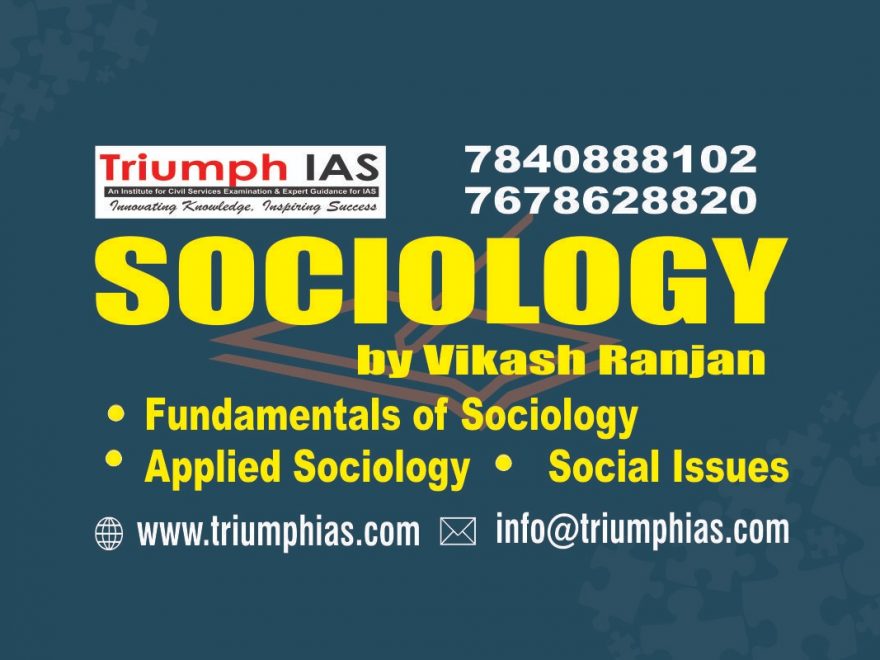Relevance: Sociology: Paper I: Thinkers: Talcot Parson
Role being the most vital element of the social system, its performance generates forces of strain or tension. The extent of strain depends on the way role-expectations are institutionalized in society and also on the degree to which the values of role-expectations are internalized by social actors. In relation to motivational orientation and value orientation, in the performance of roles, each actor faces dilemmas. These dilemmas emanate from strains in an individual’s choice of or preference within a range of orientations both related to needs and to values. If these dilemmas were dichotomous in character, the actor must choose between the options, before she or he can act with respect to the situation.
For example, in a situation which requires an actor to choose between universalistic values or particularistic values, the actor can choose only one of them.
There are five pattern variables of role-definition that Parsons discusses, although he says that there are many more possibilities.
– Affectivity versus affective neutrality
– Self-orientation versus collectivity orientation
– Universalism versus Particularism
– Ascription versus Achievement
– Specificity versus diffuseness.
- Affectivity versus affective Neutrality : The dilemma here is in deciding whether one expresses their orientation in terms of immediate gratification (affectivity) or whether they renounce immediate gratification in favor of moral interests (affective-neutrality). parsons says, ‘’no actor can subsist without gratifications, while at the same time no action system can be organized or integrated without the renunciation of some gratifications which are available in the given situation’’

- Self-Orientation versus Collectivity Orientation: The main issue is that of moral standard in the procedure of evaluation. The moral standard arises from the fact that actor has to make a choice between his or her own gratification and its determent for the good of a larger number of people, a collectivity. Some form of altruism and self-sacrifice is involved. The dilemma of this pattern variable has always been present in human life from primitive mode of economy and society to modern civilization. The notion of socialist society offers us a good example where a whole social system and patterns of its institutions are based on the dominant choice in favour of collectivity orientation. But as Parsons has rightly pointed out, institutionalization of such values is always fragile.
- Universalism versus Particularism: Defines the role situation where the actor’s dilemma is between the cognitive versus the cathetic (or emotional standards) evaluation. Examples of roles adhering to universalistic standards of human behaviour are role performance which goes strictly- be legal norms and legal sanctions. If one abides by the rule of law irrespective of personal, kinship or friendship considerations’ then that would be an example of the universalistic mode of role performance. If one violates legal norms only because the person involved is a kin or a friend, then particularistic considerations would be said to be operating. Parsons says that in societies where the role of the bureaucracy of the formal organisations and modern institutions has become widespread there the dilemmas of universalisms and Particularism have become a matter of choice in everyday life.
- Ascription versus Achievement: Dilemma in the ascription versus achievement pattern variable is based on whether or not the actor defines the objects of his or her role either in terms of quality or performance. In India a very good example of this pattern variable is the role performance governed by the caste system. Ascription is based on assigning certain quality to a person either by birth, or age, or sex or kinship or race. Achievement is based on personal acquisition of skills and levels of performance in society.
- Specificity versus Diffuseness: The specificity versus diffuseness pattern variable concerns the scope of the object of role performance. Scope, in this case, is to be understood in terms of the nature of social interaction. Some social interaction, such as between doctors and patients, or between buyers and sellers of goods in the market, has a very specific scope. The nature of these interactions is defined in terms of very precise context of interaction. Some role relationships are very general and encompassing in nature. Such roles involve several aspects of the object of interaction. Some examples of such role relationship are friendship, conjugal relationship between husband and wife, relationship between kin of various degrees. The scope of interaction is flexible, open and encompassing in nature.




One comment